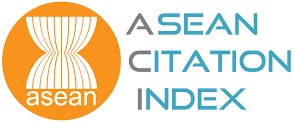Effect of temperature on fatigue life behaviour of aluminium alloy AA6061 using analytical approach
DOI:
https://doi.org/10.15282/jmes.10.3.2016.10.0216Keywords:
Aluminium alloy 6061, elevated temperatures, finite element analysis, fatigue life, linear interpolation.Abstract
This paper presents the effect of temperature on the fatigue life behaviour of aluminium alloy AA6061, under constant loading conditions, by using an analytical approach. Most of the moving components in automotive engines are under the combined effects of fatigue and temperature. Fatigue life predictions by using conventional experimental methods take a significantly long time. The finite element analysis (FEA) was used for the prediction of fatigue life and point for fatigue failure in the aluminium alloy AA6061 specimen. The stress-life curves at different levels of elevated temperature (50, 100, 150, 200, 250, and 300℃) were predicted by using a mathematical approach of linear interpolation. The maximum temperature of 300℃ was chosen based on the extreme temperature on a piston face that can be reached during the operation of the engine. The results for fatigue life at ambient temperature and at elevated temperature were compared by the Basquin relation and a decrease of 99% in fatigue life cycles was found at 300℃. A general mathematical expression was obtained to calculate the fatigue life for aluminium alloy, AA6061, at elevated temperatures. Therefore, it was concluded that the mathematical expression used in this study can be used as a good alternative approach for time consuming experimental methods. Hence, the mathematical expression proposed in this paper can be used for the early prediction of fatigue life at elevated temperatures without using much experimental analysis.
References
Mo DF, Guo-Qiu H, Zheng-Fei H, Zheng-Yu Z, Cheng-Shu C, Wei-Hua Z. Crack initiation and propagation of cast A356 aluminum alloy under multi-axial cyclic loadings. International Journal of Fatigue. 2008;30:1843-50.
Maleque MA, Radhi M, Rahman MM. Wear study of Mg-SiCp reinforcement aluminium metal matrix composite. Journal of Mechanical Engineering and Sciences. 2016;10:1758-64.
Hadley S, Das S, Miller J. Aluminum R&D for automotive uses and the department of energy’s role. ORNL/TM-1999/157, Oak Ridge National Laboratory, Oak Ridge, Tenn. 2000.
Silva F. Fatigue on engine pistons–A compendium of case studies. Engineering Failure Analysis. 2006;13:480-92.
Sivananth V, Vijayarangan S. Fatigue Life Analysis and Optimization of a Passenger Car Steering Knuckle under Operating Conditions. International Journal of Automotive and Mechanical Engineering. 2015;11:2417-29.
Kamal M, Rahman MM. Fatigue Life Estimation Based on Continuum Mechanics Theory with Application of Genetic Algorithm. International Journal of Automotive and Mechanical Engineering. 2015;11:2686-98.
Kamal M, Rahman MM. Dual-Criteria Method for Determining Critical Plane Orientation for Multiaxial Fatigue Prediction Using a Genetic Algorithm. International Journal of Automotive and Mechanical Engineering. 2015;11:2571- 81.
Zhu X, Shyam A, Jones J, Mayer H, Lasecki J, Allison J. Effects of microstructure and temperature on fatigue behavior of E319-T7 cast aluminum alloy in very long life cycles. International Journal of Fatigue. 2006;28:1566-71.
Juijerm P, Altenberger I. Effect of temperature on cyclic deformation behavior and residual stress relaxation of deep rolled under-aged aluminium alloy AA6110. Materials Science and Engineering: A. 2007;452:475-82.
Joun M, Choi I, Eom J, Lee M. Finite element analysis of tensile testing with emphasis on necking. Computational Materials Science. 2007;41:63-9.
Mohamed MA, Manurung YHP, Ghazali FA, Karim AA. Finite Element-Based Fatigue Life Prediction of a Load-Carrying Cruciform Joint. Journal of Mechanical Engineering and Sciences. 2015;8:1414-25.
Kamal M, Rahman MM. An Integrated Approach for Fatigue Life Estimation Based on Continuum Mechanics Theory and Genetic Algorithm. International Journal of Automotive and Mechanical Engineering. 2015;11:2756-70.
Lee YL, Pan J, Hathaway R, Barkey M. Fatigue Testing and Analysis: Theory and Practice: Butterworth-Heinemann; 2011.
Liu Y, Yu J, Xu Y, Sun X, Guan H, Hu Z. High cycle fatigue behavior of a single crystal superalloy at elevated temperatures. Materials Science and Engineering:
A. 2007;454:357-66.
Beden S, Abdullah S, Ariffin A, Al-Asady N. Fatigue crack growth simulation of aluminium alloy under spectrum loadings. Materials & Design. 2010;31:3449-56.
Zakaria KA, Abdullah S, Ghazali MJ. Comparative study of fatigue life behaviour of AA6061 and AA7075 alloys under spectrum loadings. Materials & Design. 2013;49:48-57.
Uematsu Y, Akita M, Nakajima M, Tokaji K. Effect of temperature on high cycle fatigue behaviour in 18Cr–2Mo ferritic stainless steel. International Journal of Fatigue. 2008;30:642-8.
Bahaideen FB, Saleem AM, RIPIN ZM, Samad Z, Badarulzman NA. Fatigue Behaviour of Aluminum Alloy at Elevated Temperature. Modern Applied Science. 2009;3:p52.
Mohammad M, Abdullah S, Jamaludin N, Innayatullah O. Predicting the fatigue life of the SAE 1045 steel using an empirical Weibull-based model associated to acoustic emission parameters. Materials & Design (1980-2015). 2014;54:1039- 48.
Bronstejn IN, & Semendjaev, K. A. Handbook of mathematics: Springer.; 2013.
Mohammad M, Abdullah S, Jamaluddin N, Padzi M. On the need to correlate acoustic emission and fatigue strain signals associated to metallic component life assessment. International Journal of Mechanical and Materials Engineering. 2012;7:78-82.
Kadhim N, Abdullah S, Ariffin A. Effect of the fatigue data editing technique associated with finite element analysis on the component fatigue design period. Materials & Design. 2011;32:1020-30.
Boyer H, Gall T. Metals HandbookAmerican Society for Metals. Metals Park, OH. 1985:216.
Ribeiro AS, de Jesus AM, Feup I. Fatigue behaviour of welded joints made of 6061-T651 aluminium alloy: INTECH Open Access Publisher; 2011.
Wong WA. Monotonic and cyclic fatigue properties of automotive aluminum alloys. SAE Technical Paper; 1984.
Zakaria KA, Abdullah S, Ghazali MJ, Azhari CH. Influence of spectrum loading sequences on fatigue life in a high-temperature environment. Engineering Failure Analysis. 2013;30:111-23.
Kwon Y-N, Lee Y, Lee J. Deformation behavior of Al–Mg–Si alloy at the elevated temperature. Journal of Materials Processing Technology. 2007;187:533-6.
Downloads
Published
Issue
Section
License
Copyright (c) 2016 The Author(s)

This work is licensed under a Creative Commons Attribution 4.0 International License.





